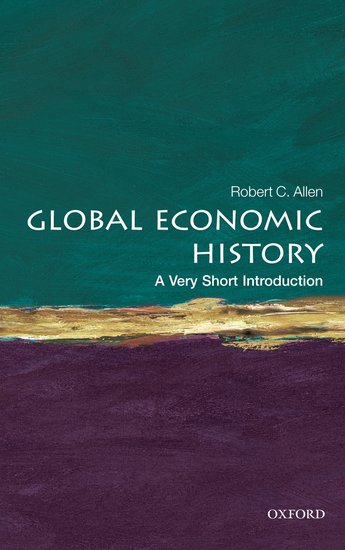A Very Short Introduction | Business & Economics
Dictionaries
ISBN: 9780199596652
Series: A Very Short Introduction
Dictionaries (Business & Economics)
A Very Short Introduction Dictionaries (Business & Economics) Media > Books > Non-Fiction > Education Books Now Available| Order Below |
ISBN
9780199596652 (10-digit ISBN: 0199596654)
- Description
- Key Features
- Series Description
- Table of Contents
- Examines the history from their origins to modern day online and electronic dictionaries
- Explores both the myths and reality about dictionaries
- Includes examples comparing dictionary entries in different volumes through time and across nations
- Considers the idea that dictionaries are cultural documents that are connected to the world in which they were produced
Do, or should, dictionaries control language? How do they treat language change, both now and in the past? Which words do dictionaries leave out - and on what grounds? Dictionaries are far more than works which list the words and meanings of a language. In this Very Short Introduction Lynda Mugglestone shows that all dictionaries are partial and all are selective. They are human products, reflecting the dominant social and cultural assumptions of the time in which they were written.Dictionaries exist then not only as works which seek to document language, but also as cultural documents that are connected to the world in which they were produced. Exploring common beliefs about dictionaries, providing glimpses of behind the scenes dictionary makers at work, and confronting the problems of how a word is to be defined, Mugglestone shows that dictionaries are always, and inevitably, more than the crafting of a simple list of words. Concluding with a look at the range of modern dictionaries and transformations, from online dictionaries such as urbandictionary.com or wictionary to txt-spk and slang, she reveals the controversial nature of the debates about communication and language, showing that only in written and spoken English does the language of dictionaries exist in full.
Oxford's Very Short Introductions series offers concise and original introductions to a wide range of subjects--from Islam to Sociology, Politics to Classics, Literary Theory to History, and Archaeology to the Bible.
Not simply a textbook of definitions, each volume in this series provides trenchant and provocative--yet always balanced and complete--discussions of the central issues in a given discipline or field. Every Very Short Introduction gives a readable evolution of the subject in question, demonstrating how the subject has developed and how it has influenced society. Eventually, the series will encompass every major academic discipline, offering all students an accessible and abundant reference library.
Whatever the area of study that one deems important or appealing, whatever the topic that fascinates the general reader, the Very Short Introductions series has a handy and affordable guide that will likely prove indispensable.
Please note: As this series is not ELT material, these titles are not subject to discount.
Preface
1: Identity
2: History
3: Craft
4: Authority
5: Truth
6: Last words
Do, or should, dictionaries control language? How do they treat language change, both now and in the past? Which words do dictionaries leave out - and on what grounds? Dictionaries are far more than works which list the words and meanings of a language. In this Very Short Introduction Lynda Mugglestone shows that all dictionaries are partial and all are selective. They are human products, reflecting the dominant social and cultural assumptions of the time in which they were written.Dictionaries exist then not only as works which seek to document language, but also as cultural documents that are connected to the world in which they were produced. Exploring common beliefs about dictionaries, providing glimpses of behind the scenes dictionary makers at work, and confronting the problems of how a word is to be defined, Mugglestone shows that dictionaries are always, and inevitably, more than the crafting of a simple list of words. Concluding with a look at the range of modern dictionaries and transformations, from online dictionaries such as urbandictionary.com or wictionary to txt-spk and slang, she reveals the controversial nature of the debates about communication and language, showing that only in written and spoken English does the language of dictionaries exist in full.
Key Features
- Examines the history from their origins to modern day online and electronic dictionaries
- Explores both the myths and reality about dictionaries
- Includes examples comparing dictionary entries in different volumes through time and across nations
- Considers the idea that dictionaries are cultural documents that are connected to the world in which they were produced
Series Description
Oxford's Very Short Introductions series offers concise and original introductions to a wide range of subjects--from Islam to Sociology, Politics to Classics, Literary Theory to History, and Archaeology to the Bible.
Not simply a textbook of definitions, each volume in this series provides trenchant and provocative--yet always balanced and complete--discussions of the central issues in a given discipline or field. Every Very Short Introduction gives a readable evolution of the subject in question, demonstrating how the subject has developed and how it has influenced society. Eventually, the series will encompass every major academic discipline, offering all students an accessible and abundant reference library.
Whatever the area of study that one deems important or appealing, whatever the topic that fascinates the general reader, the Very Short Introductions series has a handy and affordable guide that will likely prove indispensable.
Please note: As this series is not ELT material, these titles are not subject to discount.
EASY ORDER FORM
PRICES LISTED INCLUDE CONSUMPTION TAX
Price Before Tax:
¥1,790


